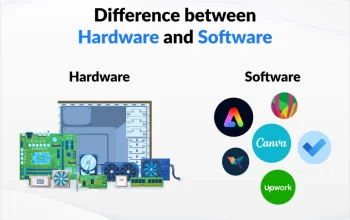Becoming a software developer takes hard work and dedication. Students must dedicate themselves to mastering programming languages and build an array of coding projects as part of their coursework.
Many learners opt for bootcamps and degree programs to strengthen their abilities, while others gain professional experience through internships or junior developer roles. Whatever their educational pathway may be, all learners should seek professional resources and keep informed on emerging tech trends.
Skills
Software development is a complex field. Although there are various pathways into becoming a software developer – self-taught programmers and coding bootcamps among them – most employers prefer applicants who hold at least a bachelor’s degree in computer science or related discipline.
Mastery of programming languages is key for becoming a successful software developer. These four core languages – Java, Python, C++ and Scala – each offer distinct benefits depending on what kind of project they’re being used on.
An additional essential skill for software developers is their ability to write code that is both optimized and debugged, including having an excellent understanding of data structures and algorithms that help detect and fix errors in programs. They should also possess expertise with working with databases – which are crucial tools for collecting and organizing information – typically done with Structured Query Language (SQL), the most popular database language; possessing this skill can assist them in building efficient database systems with accuracy. Being open-minded towards new ideas is also highly valued among software developers.
Education
No single path exists for becoming a software developer; however, coding bootcamps and degree programs offer one solution to acquire education necessary to enter this profession. According to Pratt, these programs combine classroom study with hands-on practice in order to build professional skills.
Internships play an integral part in the professional growth of software developers, providing them with experience in project management techniques and responsibility management responsibilities. Internships allow aspiring software developers to build up a portfolio featuring both web-based applications and systems-level programming projects.
Software developers must keep abreast of emerging tools, computer languages and apps that enter the market at a rapid rate in order to remain up-to-date. Being adept at adapting quickly to these changes – commonly referred to as hacking – requires agile responses. Furthermore, possessing effective communication skills allowing them to share ideas and understand technical concepts effectively among team members, clients and stakeholders both verbally and written forms is also vitally important.
Experience
Software development opens up many job possibilities for those with the right set of skills. From IT, healthcare and finance to education, government and nonprofits – the field is vast.
Software developers typically oversee and create programs tailored specifically for one industry, including testing them to detect any bugs. Furthermore, they often work within teams of other programmers in developing these solutions.
IT enthusiasts with an affinity for problem-solving will likely thrive as software developers. Friends and family may seek your advice when it comes to technical matters, and you might even be the first one to test new gadgets and technology before its release. Software development jobs offer dynamic work environments which keep it fun yet challenging; additionally they create applications which have profound effects on people around the world while solving complex issues that affect millions daily.
Personality
Software developers require both strong technical abilities and a charismatic personality in order to thrive. The best developers find immense joy in solving challenging problems and seeing computers work in accordance with expectations; additionally, they must also be adept at explaining technical details of software development to non-technical customers.
A great developer must be open to new ideas and willing to try different approaches if something doesn’t seem to be working as intended. They have an eye for seeing the big picture and considering all available solutions before choosing one; an error could have dire repercussions if left uncorrected.
An outstanding software engineer is a team player and genuinely invested in their teammates’ success. They readily provide assistance to junior developers, clients who are having difficulties using the program they are accountable for and even co-workers who need help. Furthermore, they acknowledge their mistakes without allowing them to hold them back.





